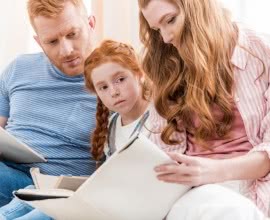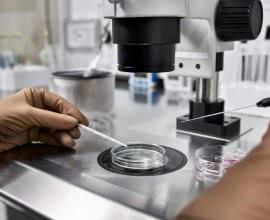What is egg donation process and what to expect?
What is egg donation process?
Among various types of becoming a donor, egg donation may seem to be one of the most complex and yet overwhelming processes. Donating eggs can be described as one of the most powerful and rewarding decisions for fertile woman to take. Numerous couples struggle with having children, so the egg donation procedure is impossible to undervalue for them... The process itself defines fertile woman donating her egg(s) to another woman with the aim to help her conceive. Currently, egg donation is specified as the part of assisted reproductive technology (ART).
The process typically involves a qualified doctor that removes an egg or eggs from the donor. Afterwards – egg(s) should be fertilized in a laboratory, so then the resulting embryos would be transferred into the recipient’s uterus. Medical staff carries on this procedure do this using an implantation procedure (IVF). In some cases, the laboratory specialists may decide to freeze some or all of the embryos for their later use or implantation in different women. It is important to add that egg donation frequently benefits those women, who cannot use their own eggs for various reasons - including ovarian failure, avoiding congenital anomalies in the fetus, or advanced age.
Egg Donor Requirements
In order of better understanding of the process of egg donation - it is essential to see some of the following minimal requirements towards potential egg donors:
-
Age range as of between 21 and 31 years old;
-
General physical health;
-
Non-smoker;
-
Regular menstrual periods;
-
No contraception use;
-
Both ovaries’ possession;
-
Psychological health;
-
No use of any psychoactive drugs;
-
No history of any substance abuses;
-
No family history of any inheritable genetic disorders;
-
Readiness to be injected;
-
Reliability and maturity for keeping all the appointments and following essential procedures.
Prior to the beginning of donor egg cycle, it is highly recommended for all the egg donors to discuss any potential risks and side effects of egg donation with their fertility physician(s). Therefore, when talking about choosing professional medics in Prague - such as Medical Travel Czech team - should be considered for egg donation process.

Potential Risks and Effects of Egg Donation
According to collected data, there can be several side risks and/or side effects associated with different stages of the procedure of providing donor eggs, such as the following ones:
-
Blood drawing that might increase mild discomfort and deliver a certain risk of developing a bruise at the needle site;
-
Fertility drugs - in some individual cases - can moderate weight gain, mood changes, stomach pressure, headaches, allergies and some ovarian syndromes. In more details – hyper stimulation may lead to enlarged ovaries and development of blood clots. In very rare cases, it leads to fluid collection in the abdomen or lungs, kidney failure, or stroke. However, the risk of hyper stimulation is usually minimized, when the follicles are aspirated according to plan of the donor egg retrieval. The risk increases if, after taking the fertility medications – there is no actual undergoing for the egg retrieval. Another unlikely possibility of impact on pelvic organs might include pain, irregular menstrual function, or impairment of the future fertility.
-
Antibiotics might create various allergic reactions, depending on each donor’s individual health conditions and situation.
-
Ultrasound guided egg retrieval might create some mild or moderate discomfort after the procedure itself. Potentially serious complications include bleeding, infection, and injury to the bowel or blood vessels. Thus, anesthesia would be necessary for the egg retrieval.
-
Ultrasound examinations currently possess no known risks, delivering minimal discomfort.
-
Torsion can create a certain twisting of an enlarged ovary resulting in sudden onset of severe abdominal pain. Onset during exercise or other agitating movement is common.
-
Psychological distress is another widely known side effect to associate with assisted reproductive technology procedures.
-
Inconvenience, in general, for the monitoring procedures during the period of stimulation, and the time needed to perform the egg retrieval itself might result in a certain amount of inconvenience and lost time.
-
Potential long-term risks contain no definitive studies to demonstrate any links between egg donation and infertility, cancer, or any other significant long-term health problems. Since egg donation is a relatively new procedure, there will definitely be more materials on the long-term effects of donor eggs in the future - when additional researches become available and proven.
-
Some women find they need several days of rest to recover from the transvaginal ovarian aspiration. Other ones return to normal activities the next day.
Some programs provide aftercare to donors, but others do not. As the egg donation process can have a psychological impact, some women may find it useful to work with a counselor or psychotherapist after the procedure.
After the Procedure of Egg Donation
Talking about possible outcomes of egg donating – they widely vary, depending on the individual health conditions of each donor. Thus, some women might find that they would need several days of rest for recovering from the transvaginal ovarian aspiration. By the same talking - others might be returning to their habitual activities the next day. Moreover, the egg donation process can have a psychological impact, and some of the women may find it very helpful to work with psychotherapist after the medical procedure.
Sources:
[1] Stanford University: The Medical Procedure of Egg Donation
https://web.stanford.edu/class/siw198q/websites/eggdonor/procedures.html
[2] The Family Tree: Egg Donor Disqualifiers
https://familytreesurrogacy.com/blog/egg-donor-disqualifiers/
[3] CCRM Fertility: 16 Things You Need to Know about Donating Your Eggs
https://www.ccrmivf.com/news-events/eggdonation/
[4] The Egg Donor and Surrogacy Program: Becoming an Egg Donor
https://www.eggdonation.com/becoming-an-egg-donor
[5] Emory Healthcare: Egg Donation Program
https://www.emoryhealthcare.org/womens-health/wellness/donor-process.html














